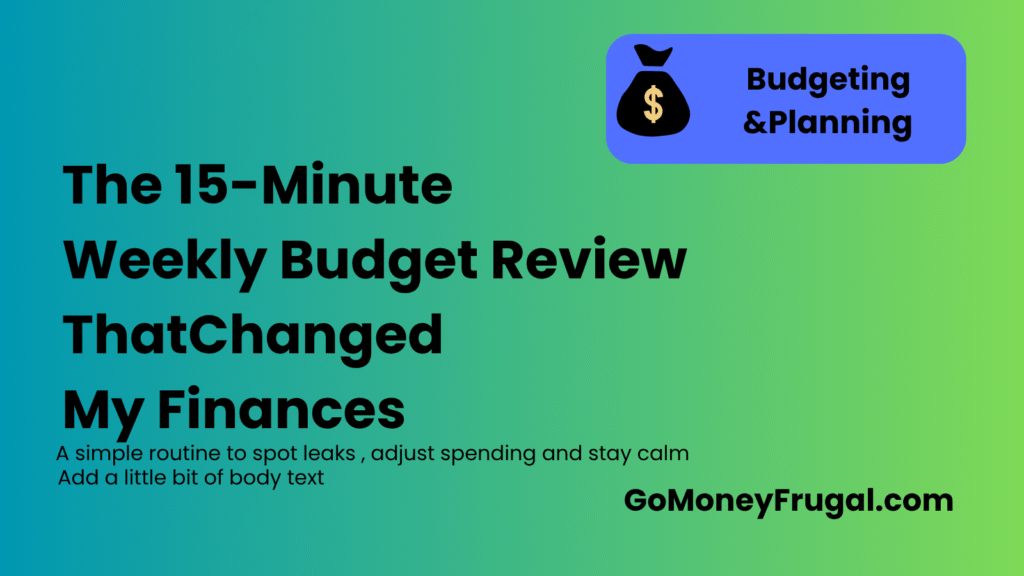The 15-Minute Weekly Budget Review That Changed My Finances
Discover how a simple 15-minute weekly routine can transform your relationship with money. Learn the exact framework for catching overspending early, preventing financial surprises, and building wealth through consistent financial awareness—without complex spreadsheets or overwhelming budget sessions.
The 15-Minute Weekly Budget Review That Changed My Finances Read More »
Budgeting & Planning
